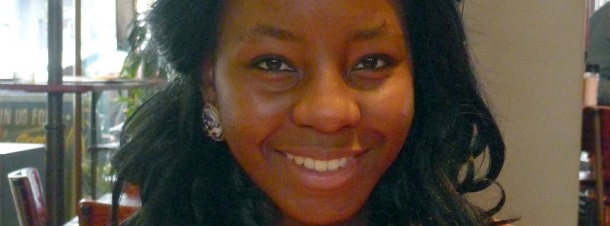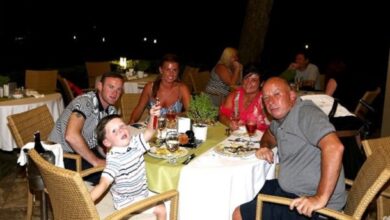“Coconut” scolded her classmates the ambitious South African Chido Vanessa, 22 black on the outside, white on the inside. Who wants to become a young black man must reckon with prejudice on the Capetown sometimes. Success is still unevenly distributed in the former apartheid state.
Chido Vanessa Dandajena was her ascent to school spokeswoman also a severe setback. When the black girl won the trust of her classmates, she lost for her boyfriend. “He thought it was like most others do not cool that I was ambitious,” says Vanessa Chido.
In high school in Johannesburg, it has always been incredibly difficult. It was different and many classmates had no great desire to learn. Only at the University of Cape Town everything is getting better, but she was still an outsider, says the 22-year-old. After all, they now know more people who have similar ideas about life like her.
Even if this is a subjective and generalized statement also researchers and politicians are critical of the situation of youth. The political scientist Jonathan Snyman from South African Institute of Race Relations in Johannesburg points out that children and young people in South Africa “often charged” were.
Poverty is still a problem in many parts of the education system “miserable condition”. Many often come hungry to school. Nearly four million young people were growing up without parents or with only one parent. “Especially when there is a lack of role models, often suffer the motivation to learn,” said Syman.
Many children leave school with no qualifications
Die Misere der öffentlichen Schulen ist auch der Regierung bekannt. “Fast 50 Prozent der 15- bis 24-jährigen sozial benachteiligten Jugendlichen in Südafrika finden nach ihrem Schulabschluss keine Arbeit”, heißt es in einer Studie der Deutschen Gesellschaft für Internationale Zusammenarbeit (GIZ). Fast ein Drittel aller Kinder verlässt die Schule ohne qualifizierenden Abschluss.
For young people like Chido Vanessa in South Africa there is even a special term, which some understand as an insult, Who shall rise up and make something special, which is quickly insulted as a “coconut”, black on the outside, white on the inside.
For Chido Vanessa, it is hardly a consolation that even the black opposition leader in Parliament Lindiwe Mazibuko was defamed by members as “coconut”. The problem many have, but it was a taboo, says the student. Problems could give it matter if they speak English without accent in a taxi. Some drivers would make fun of that they use the “language of the whites.”
In multi-ethnic state that skin color plays a huge role in almost 20 years after the end of the apartheid system. Many blacks who make up 80 percent of the nearly 50 million South Africans see themselves still serious disadvantage, especially economically. In fact, most of the rich are white, although there are now many black entrepreneurs and intermediates. But poverty in resource-rich Africa is still enormous, and it is mainly black.
“On the hook”: freedom and demarcation
Nearly one in three South Africans living on state aid funds. Unemployment stands at over 25 percent,. Did the black youth in more than 50 percent “A social time bomb”, calls the General Secretary of the trade union federation Cosatu, Zwelinzima Vavi.
Young blacks looking for work often receive “automatically the dirtiest jobs,” says Vanessa Chido. So they could understand their former classmates when many did not believe with hard work and creativity to find the way out of the misery. Fatalism is paired with a certain sense of entitlement. “You have the feeling that after the apartheid era stand them too much, the country owe them something.” For other young people turn it was cool to be “on the hook” – a slang term for life on the road, to signal freedom and distinction.
The key to a better future, experts in a reform of the education system, even though South Africa’s students lag far. The most recent education report of the World Economic Forum, the country ranks in the quality of science education 139 Out of 143 countries. The road is still so long.
[adrotate group=”15″]




